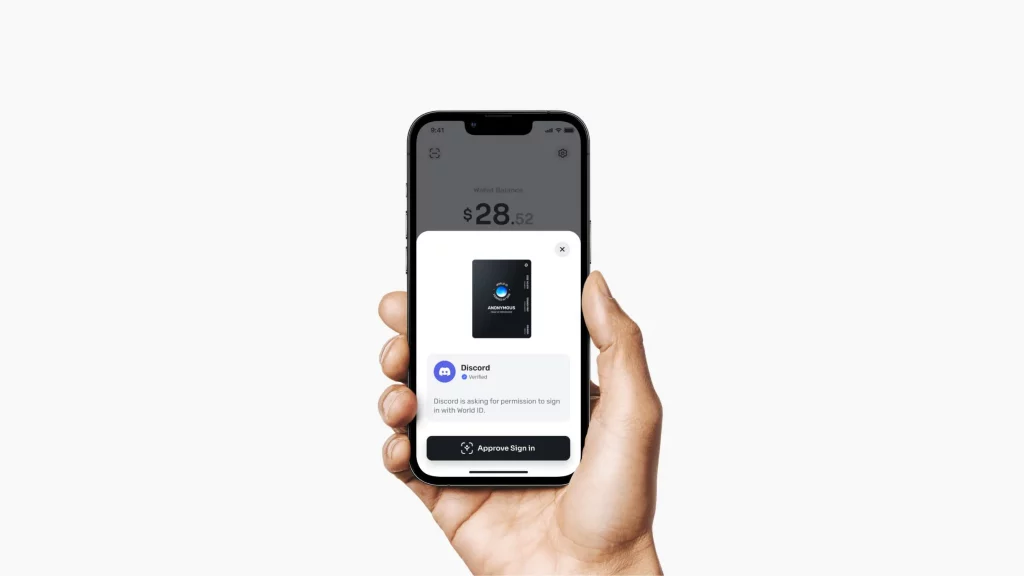Worldcoin Will Allow Companies and Governments to Use its Iris-Scanning and Identity-Verifying Technology


In Brief
Worldcoin will allow organizations and governments to utilize its decentralized identity protocol. Businesses will reportedly have the possibility of paying to use Worldcoin’s iris-scanning and identity-verifying technology.
While the program is being investigated in Kenya, Germany, France, and Britain, Worldcoin will continue operations in Africa, Latin America, and Europe.
The open-source protocol Worldcoin, co-founded by OpenAI CEO Sam Altman and Tools For Humanity CEO Alex Blania, shared that it will allow organizations and governments to utilize its decentralized identity protocol. Businesses will reportedly have the possibility of paying to use Worldcoin’s iris-scanning and identity-verifying technology.
“The idea is that as we build this infrastructure, we allow other third parties to use the technology,” Ricardo Macieira, regional manager of Europe, told Reuters.
The company also plans to extend its operations to add additional users worldwide.

Worldcoin is the largest identity and financial public network that aims to expand access to the global digital economy. It features World ID, a digital identification system designed to protect privacy. The system enables participants to earn tokens that can be converted into fiat money. To receive tokens, individuals must scan their iris and exchange the scans for digital IDs.
Worldcoin’s official website states that the project was developed with plans to become “the world’s largest human identity and financial network, giving ownership to everyone.” Furthermore, it aims to “establish universal access to the global economy regardless of country or background.”
The project went live on July 24. Today, individuals can scan their iris in over 35 cities across 20 countries worldwide. As of the time of writing, 2,177,095 people have signed up for the program.

Despite Altman’s and Blania’s good intentions, Worldcoin has not yet addressed privacy concerns regarding the Orb, the device that scans the iris and “verifies” humanness and uniqueness. For example, if users’ data gets compromised, it cannot be further used for identity verification.
In fact, on August 2, Kenya’s interior ministry announced an investigation into Worldcoin, and the program was suspended. German, French, and British data watchdogs are also investigating the project. In the United States, people cannot profit from participating in the program, as the country does not have clear rules about users receiving monetary bonuses for registering on platforms.
However, Wordlcoin stated that it will continue operations in Africa, Latin America, and Europe, as well as “all the parts of the world that will accept” them.
Read more:
Disclaimer
In line with the Trust Project guidelines, please note that the information provided on this page is not intended to be and should not be interpreted as legal, tax, investment, financial, or any other form of advice. It is important to only invest what you can afford to lose and to seek independent financial advice if you have any doubts. For further information, we suggest referring to the terms and conditions as well as the help and support pages provided by the issuer or advertiser. MetaversePost is committed to accurate, unbiased reporting, but market conditions are subject to change without notice.
About The Author
Valeria is a reporter for Metaverse Post. She focuses on fundraises, AI, metaverse, digital fashion, NFTs, and everything web3-related. Valeria has a Master’s degree in Public Communications and is getting her second Major in International Business Management. She dedicates her free time to photography and fashion styling. At the age of 13, Valeria created her first fashion-focused blog, which developed her passion for journalism and style. She is based in northern Italy and often works remotely from different European cities. You can contact her at valerygoncharenko@mpost.io
More articles

Valeria is a reporter for Metaverse Post. She focuses on fundraises, AI, metaverse, digital fashion, NFTs, and everything web3-related. Valeria has a Master’s degree in Public Communications and is getting her second Major in International Business Management. She dedicates her free time to photography and fashion styling. At the age of 13, Valeria created her first fashion-focused blog, which developed her passion for journalism and style. She is based in northern Italy and often works remotely from different European cities. You can contact her at valerygoncharenko@mpost.io






















































